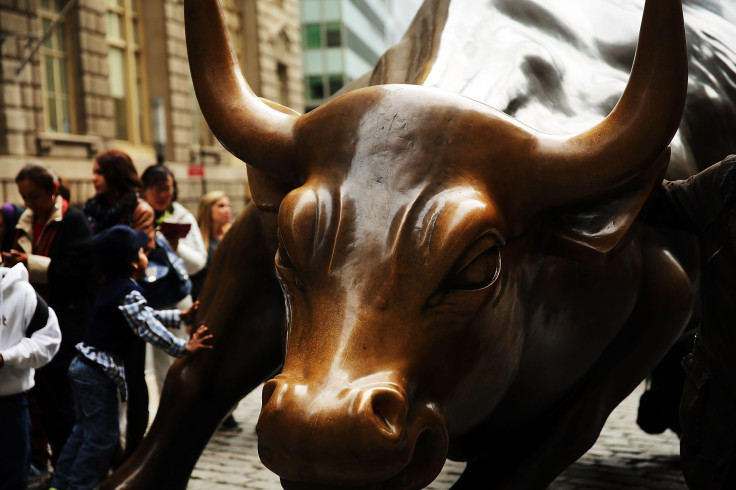Thursday's Stock Market Close: Indexes Climb To New Heights On Chinese Trade Talks

News the U.S. and China agreed on a regime for eliminating tariffs was tempered by rumbles the deal wasn’t as firm as initially portrayed, putting a lid on what started as a surge on Wall Street Thursday.
The Dow Jones Industrial Average still managed to add to the record high it set this week, gaining 182 points to 27,675 while the Nasdaq Composite gained 23 points to 8,434 and the S&P 500 rose 8 points to 3,085.
Volume on the New York Stock Exchange totaled 3.2 billion shares with 1,325 issues advancing, 173 setting new highs, and 1,646 declining, 42 setting new lows.
Uber Technologies (UBER), Bank of America (BAC) and General Electric (GE) led the most actives.
The Labor Department reported initial jobless claims for the week ended Nov. 2 were 211,000, down 8,000 from the previous week’s revised level. The four-week moving average was 215,250, up 250 from the previous average.
PG&E (PCG) reported a $1.6 billion third-quarter loss, blamed in part on $20.4 billion in pretax charges related to raging wildfires in California and a tentative $11 billion September settlement to compensate insurance companies for fire related losses. Shares fell 15% to $5.88.
U.S. and Chinese negotiators have agreed to lift some tariffs on each other as part of the first phase of a comprehensive trade deal, China’s Commerce Ministry said.
“If the phase-one deal is signed, China and the U.S. should remove the same proportion of tariffs simultaneously based on the content of the deal,” spokesman Gao Feng told reporters, adding that talks in the past two weeks have been constructive.
But the market lost steam amid indications signing any agreement would be delayed until next month and a report in the Wall Street Journal saying the Chinese were trying to renegotiate the deal to their advantage.
The Bank of England decided Thursday to leave its key interest rate unchanged at 0.75% and cut its economic forecast, blaming a weaker global environment and new trade barriers resulting from Brexit that will limit growth. The BoE said growth in the United Kingdom had slowed considerably this year, with the quarterly rate half of the three-year average. Inflation is expected to fall sharply in the near-term.
The International Monetary Fund warned global debt is at a record $188 trillion, high enough to threaten world financial and economic stability.
Global markets were mostly higher.
In Asia, Hong Kong’s Hang Seng closed up 0.57% while Japan’s Nikkei 225 added 0.11% and China’s Shanghai Composite was flat, posting a fractional increase. Australia’s S&P/ASX gained 1%.
In Europe, London’s FTSE 100 was ahead 0.13%, while the German DAX added 0.83% and the French CAC 40 increased 0.41%. The Stoxx Europe 600 gained 0.37%.
On currency markets, the British pound lost 0.35% to $1.2812 while the euro dipped 0.18% to $1.1045. The dollar index was 0.2% higher.
Oil futures were mixed. Crude oil added 0.99% to $56.89 a barrel. Brent crude dipped 1.429% to $62.11. Gold futures fell 1.57% to $1,469.60 an ounce and silver futures gave up 2.94% to $17.08 an ounce.
Yields on the 10-year Treasury note rose to 1.92% while yields on the 30-year note rose to 2.4%.
© Copyright IBTimes 2024. All rights reserved.






















